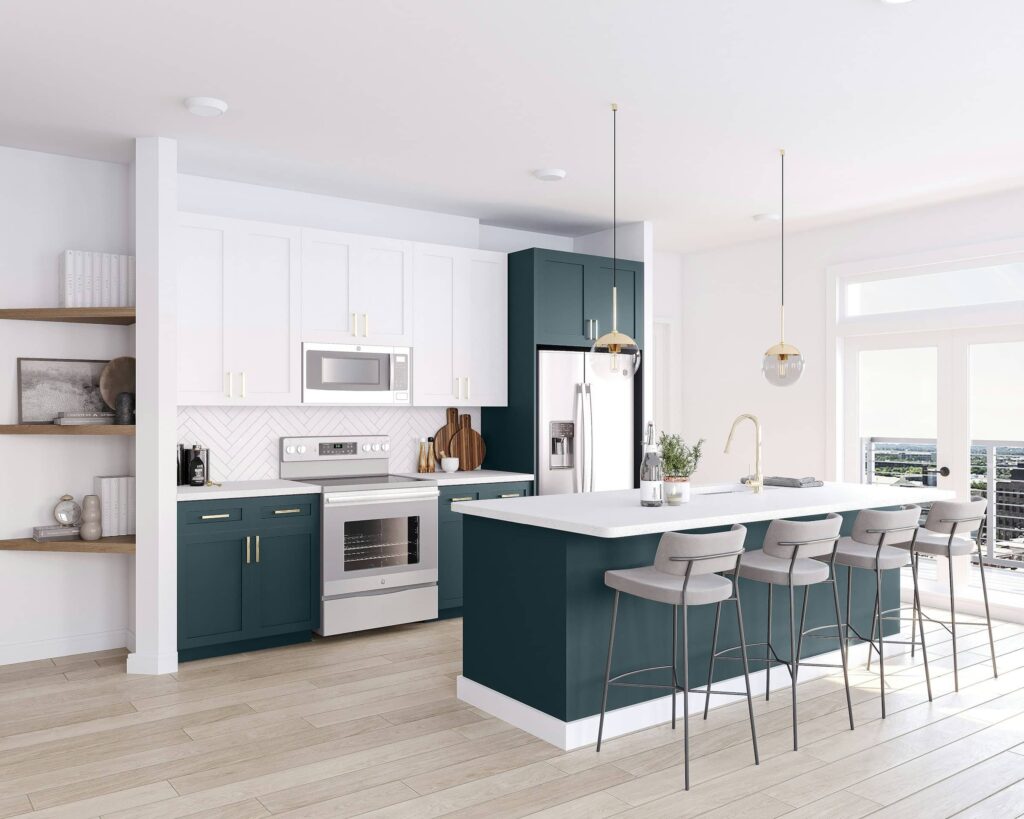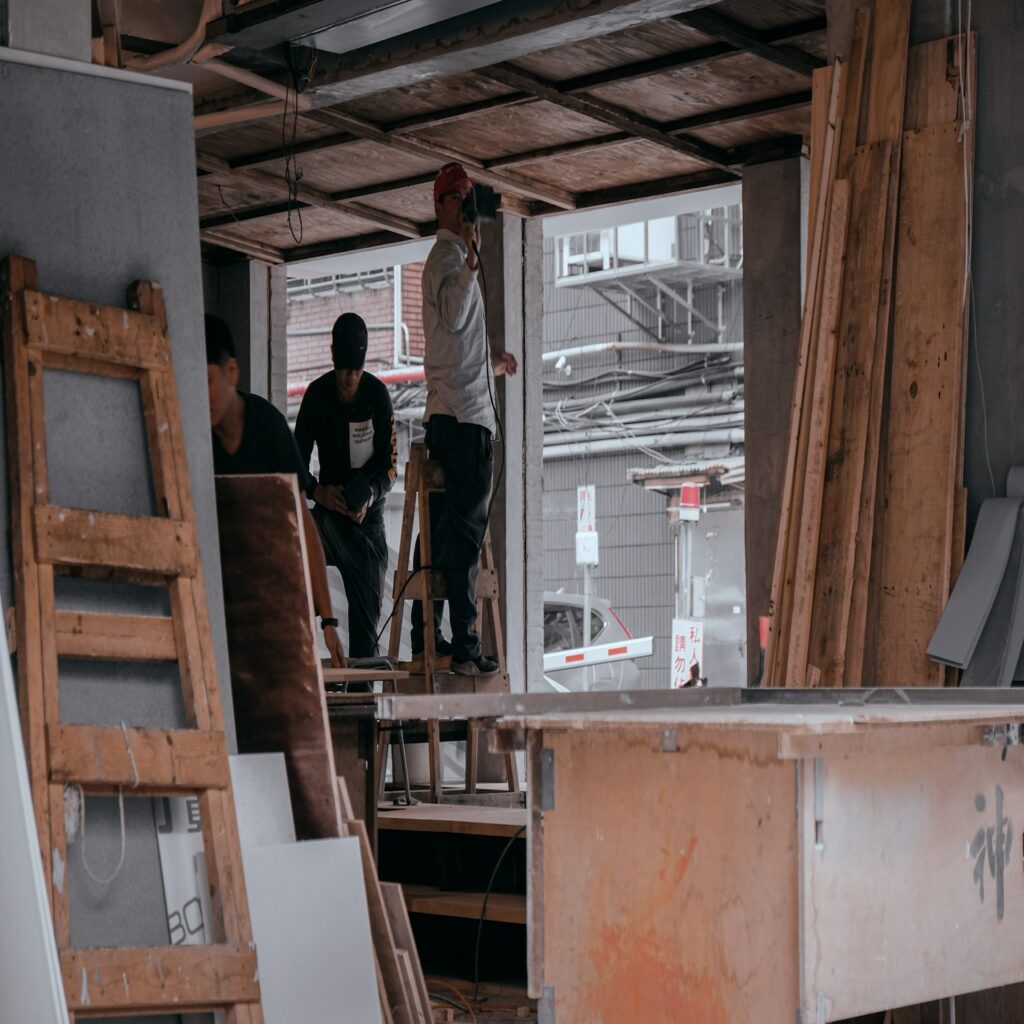Renovating your condominium can be an exciting project, especially when you’re tailoring your living space to reflect your style and comfort. However, for Maryland homeowners and homebuyers embarking on this endeavor, there’s one significant hurdle to address early on: navigating condo board regulations. Staying in compliance with these regulations is crucial to avoid costly penalties or delays. This guide lays out a clear path to help you work with condo boards effectively during your next major renovation.

Understanding Condo Board Regulations
Condominium associations or boards manage the rules that govern any structural, aesthetic, or functional changes to units. These rules, often detailed in governing documents like the Declaration of Covenants, Conditions & Restrictions (CC&Rs), protect property values and ensure uniformity within the building.
Before starting your renovation, homeowners need to understand these key areas:
- Approval Requirements: Almost all condo boards require prior approval for major renovations, particularly those affecting common areas or structural integrity.
- Work Hours: Many associations regulate permitted working hours for renovations to minimize disruption to neighbors.
- Noise Levels and Safety Standards: Most boards set noise and safety guidelines to maintain a respectful living environment.
Why You Need to Prioritize Condo Board Compliance
Failing to follow condo board regulations can lead to serious setbacks, including:
- Fines for unapproved renovations.
- Cease-and-Desist Orders, which can bring your project to a halt.
- Legal Disputes, which take time and resources.
Compliance early on ensures a smoother, stress-free renovation process.
6 Steps to Navigate Condo Board Guidelines for a Successful Renovation
Here’s how you can tackle condo board regulations effectively:
1. Review Governing Documents Thoroughly
Start by reading the condo’s CC&Rs and bylaws thoroughly. These documents outline:
- Restrictions on material types (e.g., flooring or fixtures)
- Approved vendors or contractors
- Mandatory insurance and licensing requirements
For Maryland residents purchasing a condo, ask your realtor or property manager for these governing documents during the home-buying process.
2. Engage with the Board Early
Introduce your renovation plans to your condo association early on. Schedule a meeting or submit your proposal well before you plan to start the project. Include:
- A detailed description of the renovations
- Timelines for completion
- Copies of contractor licenses and insurance
Being proactive demonstrates respect for the process and builds goodwill with the board.

3. Hire Licensed and Insured Contractors
Most condo boards require you to hire contractors who are licensed and insured to work in Maryland. Check with your contractors to ensure they’re familiar with local condo regulations, as they often vary.
For example:
- Contractors may need extra liability insurance for work in shared spaces like elevators or staircases.
- Plumbers or electricians may have to follow stricter noise ordinances when working in multi-unit buildings.
Choose professionals experienced in condo renovations who can help streamline the approval process.
4. Be Mindful of Common Areas
Renovations often have a direct and indirect impact on common areas. These include hallways, elevators, loading zones, or other shared spaces. Many condo boards require homeowners to:
- Schedule specific times for material deliveries or debris removal.
- Use protective coverings in elevators or hallways during construction to minimize damage.
Clear communication with your contractor can help avoid potential conflicts with your neighbors or additional fees for cleaning or repairs.
5. Request Written Approval
Once your renovation plans are approved, request written documentation from the condo board. This document will serve as your safeguard against potential disputes during the renovation process.
Ensure that the approval notes key details such as:
- Any special conditions (e.g., soundproofing requirements for flooring)
- Construction timelines and deadlines
Keep this document easily accessible to share with contractors as needed.
6. Maintain Communication Throughout the Project
Regular updates help ensure your project aligns with expectations and stays on track. You can achieve this by:
- Scheduling routine check-ins with board members and contractors
- Notifying neighbors about particularly noisy days
- Documenting progress and sharing any unexpected changes
Transparency ensures that everyone impacted feels involved and considered.
Building Positive Relationships with Your Condo Board
One crucial aspect of smoother renovations lies in developing a positive relationship with your condo board. Simple steps like responding promptly to their inquiries and ensuring your contractors respect building policies go a long way toward fostering goodwill. Maintaining these relationships is particularly important for repeat projects or future upgrades.
Final Thoughts
Renovating a condominium in Maryland, or anywhere, requires balancing your remodeling vision with your association’s guidelines. Understanding the condo board approval process, engaging with them proactively, and hiring professional contractors who abide by local regulations will help your project run smoothly.
Are you planning a renovation? Contact us today for guidance on managing condo regulations or for expert contractor recommendations tailored to your needs. Together, we’ll transform your condo into the home of your dreams!





